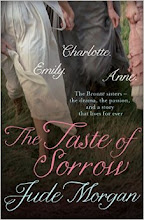 I am always looking for novels that contain the same spirit as I Capture the Castle. There is something uniquely captivating about that book, as, I suppose, its title suggests. I look frequently for its spiritual successor in the Persephone catalogue, a search which has led me now to Saplings, by Noel Streatfield.
I am always looking for novels that contain the same spirit as I Capture the Castle. There is something uniquely captivating about that book, as, I suppose, its title suggests. I look frequently for its spiritual successor in the Persephone catalogue, a search which has led me now to Saplings, by Noel Streatfield.This is one of the few novels Streatfield wrote for adults, and yet still its main voices are those of children. It is for me curiously nostalgic, as I am sure it will be for other devotees of Ballet Shoes et al (my personal favourites were the Gemma books, which I had in a gloriously 60s box set that I am unable to trace); Saplings brims with Streatfield's trademark realism, the acutely drawn observations of human nature, the simple didactic tone that never condescends, and this style, along with certain recognisable characters and situations, takes me straight back to my childhood. And yet this is in no way a book for children. There is sex. There is attempted suicide, caused by haunting loneliness and spiteful relations. There is hopelessness not always assuaged.
And yet there is beauty. The summers are idyllic: green, wild, adventure-filled, dripping with scuffed shoes and muddy ankle socks, grazed knees and torn dresses. Behind it all, of course, lurks the menace of War, the reality of which is brought cruelly home in the form of several tragic deaths. And it is this that forms the backbone of the novel; Streatfield is asking us in Saplings to look carefully at the effect of prolonged tragedy on children, particularly when that same tragedy takes hold of the adults on whom the children rely for security, and who are themselves unable to give what is required. Little worlds collapse, often entirely unnoticed, and the pieces are not put back together. War torn families learn too late that the physical survival of a child is not, within itself, enough.
The story centres simply on a middle class family - mother, father, four children, their nanny and governess - on whom the horror of the Second World War pays several unkind visits. The children are drawn with genuine insight. They are earnest, funny, sweet, heartbreaking...they try hard, but make mistakes, mistakes that in normal circumstances would have been sorted out and forgotten, but which in this abnormal situation are ignored, often with tragic psychological consequences. Laurel in particular, as the eldest daughter, bright but plain, suffers enormously at the hands of throwaway comments made by distracted adults, and our hearts bleed for her.
Streatfield illustrates with precision the decline of the family's happiness and hope. She never overwhelms us, and never preaches, but allows the story simply to unfold through a series of differing perspectives. Her adults are slightly misty, wavering at the edges and never as clear and defined as the child characters; but this in fact is exactly right for a book whose central thread concerns the failing of children by those distant adults.


1 comment:
I have this one and am looking forward to reading it. Wonderful review!
Post a Comment